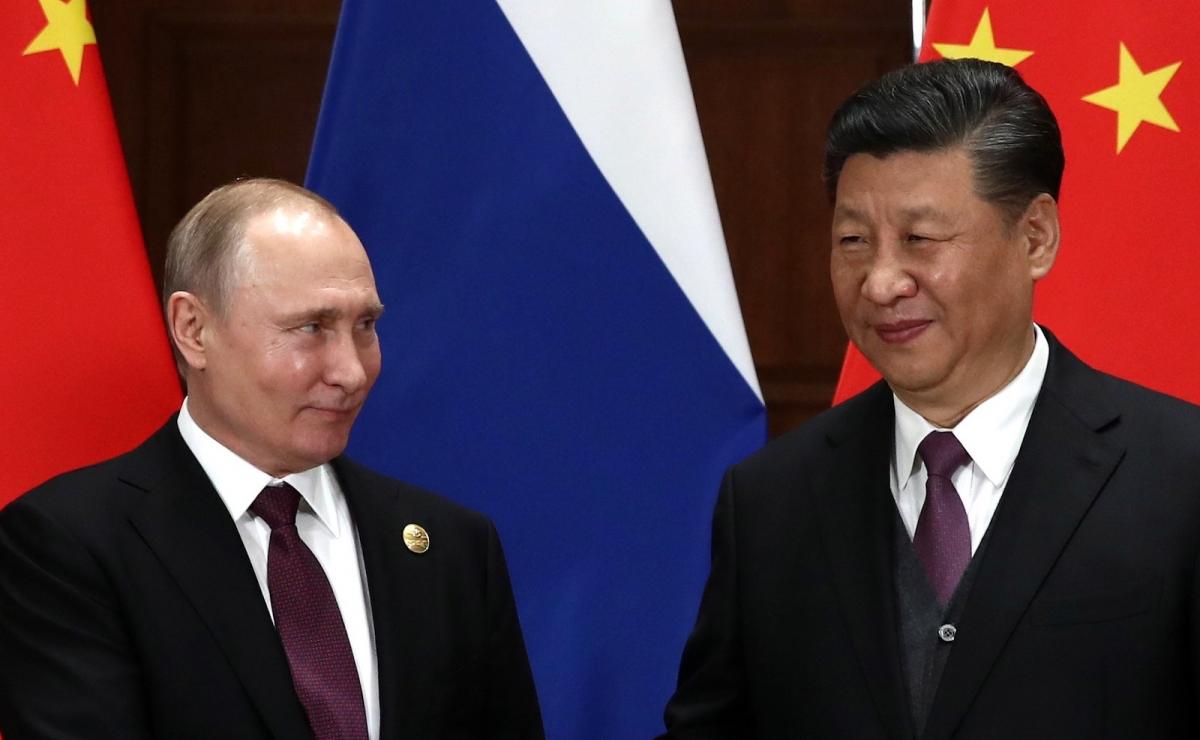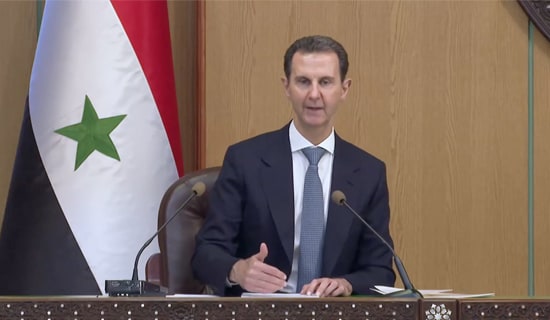On October 3, speaking before a Valdai Club conference of foreign-policy experts in Sochi, Russian President Vladimir Putin revealed that Russia is helping China develop a missile warning system: "We are now helping our Chinese partners to create a missile-warning system, a missile-attack warning system," Putin said.[1]
Commenting on Putin's disclosure, Russian expert Andrey Baklitsky published an article in the Russian media outlet Rbc.ru, titled "China Alerted: To What Will Moscow's Decision to Provide Aid to Beijing Lead."
Baklitsky assessed that Russian technical assistance to China in creating a missile attack warning system will not affect Russia-China relations, but it will directly impact US-Russia relations. "It is difficult to imagine a situation in which the developed system will pose a threat to Russia. Moscow and Beijing do not see each other as potential adversaries in the foreseeable future. It is logical to assume that the new system will be primarily focused on the United States," Baklitsky wrote.
He then added that the creation of a missile defense system could induce Beijing to develop a national missile defense system, a possible accelerant to the arms race between China and the United States. Baklitsky concluded by stating that while Russia may play an important role in developing a Chinese missile attack warning system, in the current international situation, China would have developed such a system even without Russian assistance..
Below is Baklitsky's article:[2]

(Source: Kremlin.ru)
"The President of Russia's remarks at the Valdai Forum repeatedly touched on the subject of strategic nuclear weapons. In 2018, Vladimir Putin explained to the audience the concept of a retaliatory strike, he also said that Moscow was helping Beijing create a missile attack warning system (SPRN). This is a logical result of the Russian-Chinese rapprochement and the return of the 'nuclear factor' to the great powers confrontation. This is also the process of gradual formation of new relations between nuclear states, the results of which we have yet to learn."
A Different Deterrence
"Nuclear deterrence (and possession of nuclear weapons mainly comes down to a deterrence) is based on the principle of a guaranteed retaliatory strike. If the enemy's strategic forces can be easily destroyed, they won't have a special deterrent effect. Therefore, all nuclear-weapon states seek to protect their nuclear arsenals, place warheads on different types of carriers, send them under water, into the air and underground, to increase reliability or quantity.
"In the case of Russia and the United States, this race was supplemented by an early warning system for a missile attack. Given the remoteness of the two countries from each other, specialized satellites must mark the launches of intercontinental ballistic missiles, and ground-based radars confirm the trajectory of warheads, which would leave time for the launch of the state's own nuclear weapons until the moment of the attack (retaliatory strike). In theory, this makes a preemptive attack at the enemy's strategic forces pointless.
"Unlike the two nuclear superpowers, Beijing doctrinally refused to deliver a nuclear strike first and proceeds from the assumption that even a small number of Chinese warheads that will survive a nuclear attack will suffice for a retaliatory strike. Such an approach does not require maintaining strategic forces in constant combat readiness; it is believed that the Chinese armed forces keep nuclear warheads separate from delivery systems.
"Therefore, a missile attack early warning system was not a priority for China, although the country has deployed several powerful ground-based radar stations. But the general deterioration of relations between Beijing and Washington, as well as the collapse of the arms control system forced China to give attention to strategic forces. At the October military parade in honor of the 70th anniversary of the People's Republic of China, the Dongfeng 41 intercontinental ballistic missile and the hypersonic glider placed on the Dongfeng 17 medium-range ballistic missile were demonstrated for the first time. It is obvious that the problem of missile attack warning has become more pressing for the country.
Russian Footprint
"Russia's participation in the development of the Chinese SPRN is an example of the development of two long-term trends in relations between the countries. On the one hand, Beijing has become one of the largest buyers of Russian weapons, including the most advanced ones (Su-35 fighters and S-400 air defense systems), on the other hand, Russia and China are actively cooperating in the military sphere (participation of military personnel of the two countries in military exercises, naval maneuvers, joint patrolling by strategic bombers). The development of the SPRN system combines two areas and allows us to talk about a new level of trust, although not yet about a formal military alliance.
"According to the newspaper Vedomosti, a fairly modest contract on developing software has been concluded between the two countries so far, but it is obvious that this is obviously only the beginning. Moscow may offer Beijing assistance in the integration of the already deployed radars, as well as in the construction of new radar stations, for example, the 'Voronezh' series. As far as one can tell, China also does not have early warning satellites, despite rumors regarding the Shijian 11 series of satellites. Here, the advantage of Russia looks less convincing: only this summer the third satellite of the Russian Unified Space System was launched, which allowed covering the entire territory from which missile launches can be expected. But, cooperation in satellite development is also possible.
"Finally, the next step, though not in the near future, could be the integration of the Russian and Chinese SPRNs and the exchange of information on missile launches of third countries. Moscow and Beijing are already practicing elements of such interaction in the framework of the annual computer-based missile defense training and military exercises. And if ground-based radars would hardly add anything to the existing Russian potential, a possible Chinese satellite system could be a good addition to Russian orbital facilities.
"It is difficult to imagine a situation in which the developed system will pose a threat to Russia. Moscow and Beijing do not see each other as potential adversaries in the foreseeable future. It is logical to assume that the new system will be primarily focused on the United States. And in the hypothetical case of the worst-case scenario in Russian-Chinese relations, the SPRN will not play a key role: the proximity of the two countries suggests that in the event of hostilities short and medium-range missiles will be used first, and not ICBMs, for whose detection the system is tailored."

Andrey Baklitsky (Image: Lenta.ru)
Chinese Warning
"The process that has begun will have the greatest impact on Sino-US relations. In addition to more substantive military cooperation between Russia and China, Washington will have to take into account Beijing's new approaches in the nuclear sphere. The Chinese military and experts have long been talking about the need to put the country's nuclear forces in a state of readiness for launch on warning. The creation of an SPRN system could push the Chinese leadership towards such a decision.
"Chinese experts believe that the retaliatory strike does not contradict the principle of non-usage of nuclear weapons first, but recall that the early warning system has repeatedly demonstrated technical failures more than once in its history. Blindly relying on it when deciding to launch a nuclear strike can be dangerous, especially for a country that does not have decades of experience in using a missile defense system. In fact, the development of a warning system does not necessarily mean a transition to the retaliatory strike concept and putting nuclear forces on high alert. The time gained from using the system can be used to disperse nuclear forces, evacuate the leadership, prepare control systems, etc.
"Finally, the creation of a missile defense system could induce Beijing to develop a national missile defense system, which could accelerate the arms race between China and the United States.
"One shouldn't overrate Russia's contribution to the creation of China's SPRN. In the annual report to the Congress on military affairs and security issues related to Beijing, the Pentagon has repeatedly mentioned China's desire to create an SPRN space tier. Russia may play an important role in the development of the Chinese missile attack warning system, but in the current international situation it will be implemented in any case."




